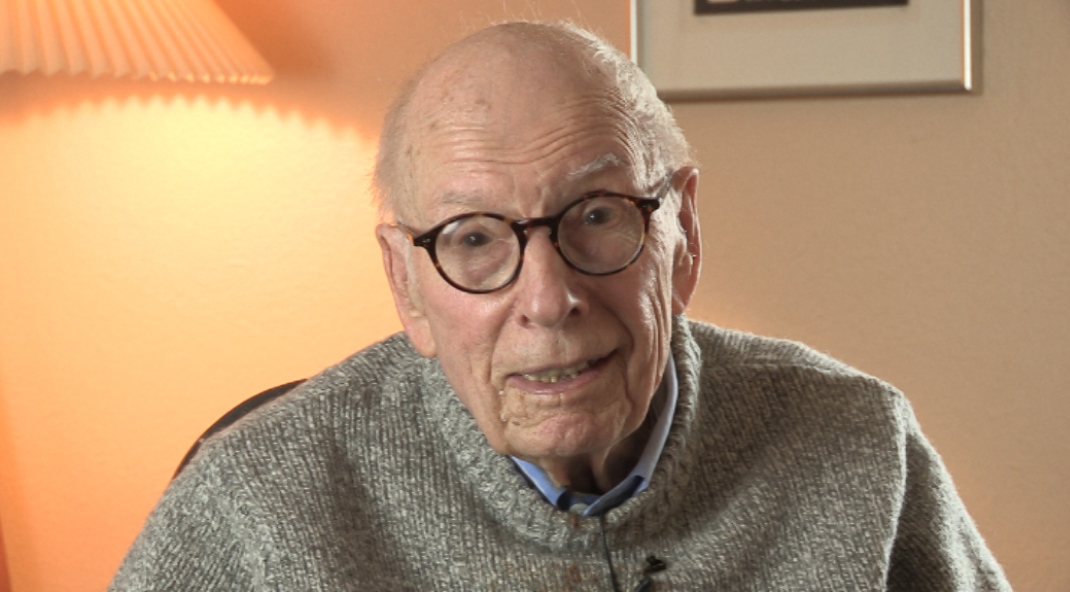NEXT STORY

I’m a 19th century biologist
RELATED STORIES

NEXT STORY

I’m a 19th century biologist
RELATED STORIES


|
Views | Duration | |
|---|---|---|---|
| 31. Demonstrating chemotaxis in development | 31 | 02:20 | |
| 32. Wallowing in the developmental aspects of slime mold | 37 | 02:48 | |
| 33. I’m a 19th century biologist | 40 | 01:35 | |
| 34. Learning about high altitude physiology | 28 | 02:55 | |
| 35. Testing the effects of decompression | 24 | 01:56 | |
| 36. Conducting experiments while still in the army | 23 | 02:23 | |
| 37. Giving slime molds a name | 28 | 01:30 | |
| 38. Learning about the facts of life | 32 | 01:57 | |
| 39. Life was fun in Locust Valley | 36 | 04:56 | |
| 40. A typical adolescence | 49 | 00:39 |


As soon as I got set up at Princeton, which in those days was really easy and you didn't have starting grants. You used the department microscopes, which were excellent. You used the department balances, which were primitive. And chemicals mostly were available, but if they weren't, they ordered them for you. And so I guess my attitude then, and starting up again was, I've got to… I've got to just wallow in the developmental aspects of slime molds and see what I see. So I had this feeling that I knew it was chemotaxis but there were so many other things. What makes it so that some cells turn into spores, and some cells turn into stalk cells, and etc, etc? So there's this tremendous number of interesting biological questions which they need answering. So I dove in. After about a year or so, I got a grant from the NSF. The NSF had just started up and I got a grant from the NSF. And they wrote to me and said, please write us a letter at the end of your progress report. So I wrote them a letter. And the letter said, well, things didn't really work out too well this year. We tried this, and it didn't work. And we tried that, and it didn't work, and that was more or less my report. I got this priceless reply, which said, don't worry about it. That's the way research goes sometimes. And I continue to think that it's too bad we lost that.
[Q] It's changed?
Yes, you're just always are boasting about what you've done.
John Tyler Bonner (born in 1920) is an emeritus professor in the Department of Ecology and Evolutionary Biology at Princeton University. He is a pioneer in the use of cellular slime molds to understand evolution and development and is one of the world's leading experts on cellular slime molds. He says that his prime interests are in evolution and development and that he uses the cellular slime molds as a tool to seek an understanding of those twin disciplines. He has written several books on developmental biology and evolution, many scientific papers, and has produced a number of works in biology. He has led the way in making Dictyostelium discoideum a model organism central to examining some of the major questions in experimental biology.
Title: Wallowing in the developmental aspects of slime mold
Listeners: Christopher Sykes
Christopher Sykes is an independent documentary producer who has made a number of films about science and scientists for BBC TV, Channel Four, and PBS.
Tags: Princeton
Duration: 2 minutes, 48 seconds
Date story recorded: February 2016
Date story went live: 14 September 2016